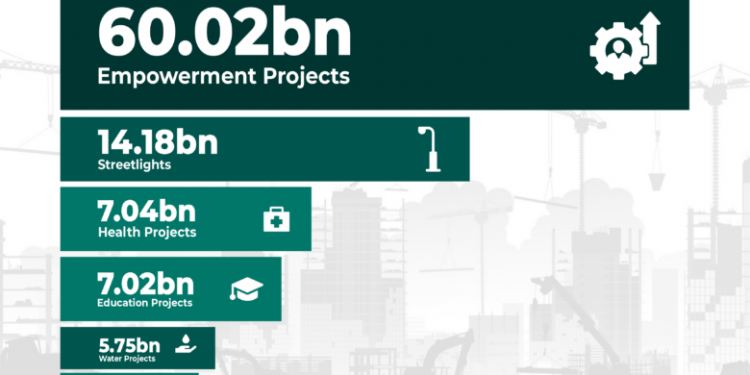BudgIT, a civic organization promoting transparency and accountability in public finance, has raised concerns over the federal government’s allocation of N732.5 billion for empowerment projects in the 2024 budget. According to BudgIT’s open-source service delivery monitoring platform, Tracka, this allocation surpasses the N646.5 billion allocated to health projects, despite Nigeria’s high child mortality rate.
Empowerment Projects Allocation
– BudgIT revealed that N732.5 billion has been allocated for empowerment projects, which are often vague and difficult to track.
– The organization criticized these projects as potential channels for funneling public resources to party loyalists, leading to the misuse of public funds.
Comparison with Health Sector
– The allocation for empowerment projects is higher than the N646.5 billion allocated to health projects, raising concerns about the government’s priorities.
– Despite Nigeria having the second-highest child mortality rate in 2023, the 2024 budget allocations do not reflect an urgent focus on health emergencies.
Scope of Empowerment Projects
– Tracka identified 4,440 empowerment projects in the 2024 budget.
– These projects, once limited to constituency projects, have now extended into capital projects through insertions by the National Assembly.
– For instance, the National Assembly inserted 7,447 projects valued at N2.24 trillion into the 2024 budget, a trend seen as problematic given Nigeria’s infrastructure gap and budget deficits.
Misallocation of Funds
– Analysis revealed that over 2,558 projects worth N624 billion were allocated to agencies outside their mandate.
– Examples include the Small and Medium Enterprises Development Agency of Nigeria (SMEDAN) receiving N5 billion for vehicle procurement for traditional rulers and the Nigeria Institute of Oceanography and Marine Research (NiOMR) allocated N2.32 billion to construct a road.
Implications and Recommendations
– BudgIT’s Country Director, Gabriel Okeowo, highlighted that assigning projects to agencies outside their mandate undermines project monitoring, evaluation, and sustainability.
– This misallocation could result in poor service delivery and a waste of taxpayer money.
– BudgIT called on anti-graft agencies to investigate these budget anomalies to prevent diversion, misappropriation, and embezzlement.
– The organization urged elected representatives and government agencies to provide timely public updates and ensure quality implementation of these projects to maximize public benefit from allocated funds.
BudgIT’s findings underscore the need for greater transparency and accountability in the federal budget to ensure that public funds are effectively utilized for the benefit of all Nigerians, particularly in critical sectors like health.










